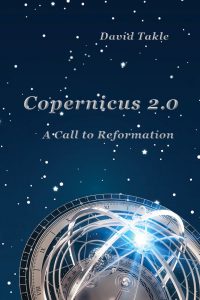 We stand today in need of a Copernican-style revolution in our Evangelical worldview. What may come as a shock to many is that the theological presuppositions of most evangelical Christians today bear little resemblance to those of the apostles. This loss of perspective is the primary force behind the devastation of the modern Church and the frustration experienced by countless believers in their attempts to live out New Testament life.
We stand today in need of a Copernican-style revolution in our Evangelical worldview. What may come as a shock to many is that the theological presuppositions of most evangelical Christians today bear little resemblance to those of the apostles. This loss of perspective is the primary force behind the devastation of the modern Church and the frustration experienced by countless believers in their attempts to live out New Testament life.
For generations we have bought into a worldview that is largely hidden from view, visible only by the answers it offers for the questions it poses, the stories it tells of salvation, the beliefs it expounds for the lives of believers, and the symbols it relies on for meaning. Under close examination, these elements all point to a worldview anchored in judicial icons, legal questions, and an overarching story of rebellion, judgment and pardon. In short, nearly all of our practical theology is being driven by a pervasive, legal-heavy, transactional view of ultimate reality.
Copernicus turned the solar system inside out by placing the sun at its center instead of the earth. In similar fashion, Copernicus 2.0 is a call to transpose the prevailing evangelical worldview, placing the love of God at the center of our theological “soular” system with relationship as its organizing principle.
As the Copernican model dramatically changed the science of astronomy, so also restoring our theological foundations will transform nearly everything we have come to believe about the Christian life.